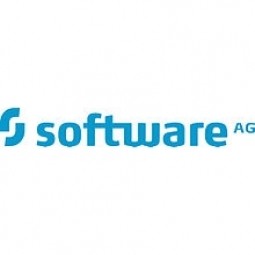下载PDF
Colruyt Group counts on webMethods to unveil digital products faster
技术
- 应用基础设施与中间件 - API 集成与管理
适用行业
- 零售
适用功能
- 销售与市场营销
- 商业运营
用例
- 零售店自动化
服务
- 系统集成
挑战
Colruyt Group, a Belgian family-owned business, is one of Europe’s largest retailers. The company has proved it can constantly evolve and meet customer expectations. Its Mobile Readiness program launched in 2018 brought countless new apps to customers for online and mobile ordering. The program not only improved customer service, it streamlined how customer data is managed and shared across all Colruyt Group brands. However, the rapid growth of e-commerce and the rise in customer-facing apps and digital devices presented new challenges. The company needed to shift to API integrations and desired to unify customer rewards and wireless payments across all Colruyt brands.
关于客户
Colruyt Group, a Belgian family-owned business, is one of Europe’s largest retailers. Established in 1928, the group owns and operates more than 600 retail stores, including its flagship Colruyt discount supermarkets. The company has 30,000 employees and annual revenues of €9.6 billion. The company has proved it can constantly evolve and meet customer expectations. Its Mobile Readiness program launched in 2018 brought countless new apps to customers for online and mobile ordering. The program not only improved customer service, it streamlined how customer data is managed and shared across all Colruyt Group brands.
解决方案
Colruyt began using Software AG’s webMethods in 2010 for application and B2B integration, as well as to automate processes and manage the lifecycle of services. webMethods enables fast access to data related to sales, customer information and suppliers, improving how the group manages customer and vendor data and complies with external regulations. When time came to evolve the company’s integration strategy, they turned to webMethods API Gateway. The API Gateway features powerful runtime governance, a dedicated web- based user interface, support for both SOAP- and REST-based APIs, and offers DMZ-level protection from harmful attacks. This solution has allowed Colruyt's Mobile Readiness to thrive with simplified information sharing, more efficient connections of new apps and devices, and runtime security.
运营影响
数量效益
相关案例.

Case Study
Improving Production Line Efficiency with Ethernet Micro RTU Controller
Moxa was asked to provide a connectivity solution for one of the world's leading cosmetics companies. This multinational corporation, with retail presence in 130 countries, 23 global braches, and over 66,000 employees, sought to improve the efficiency of their production process by migrating from manual monitoring to an automatic productivity monitoring system. The production line was being monitored by ABB Real-TPI, a factory information system that offers data collection and analysis to improve plant efficiency. Due to software limitations, the customer needed an OPC server and a corresponding I/O solution to collect data from additional sensor devices for the Real-TPI system. The goal is to enable the factory information system to more thoroughly collect data from every corner of the production line. This will improve its ability to measure Overall Equipment Effectiveness (OEE) and translate into increased production efficiencies. System Requirements • Instant status updates while still consuming minimal bandwidth to relieve strain on limited factory networks • Interoperable with ABB Real-TPI • Small form factor appropriate for deployment where space is scarce • Remote software management and configuration to simplify operations

Case Study
How Sirqul’s IoT Platform is Crafting Carrefour’s New In-Store Experiences
Carrefour Taiwan’s goal is to be completely digital by end of 2018. Out-dated manual methods for analysis and assumptions limited Carrefour’s ability to change the customer experience and were void of real-time decision-making capabilities. Rather than relying solely on sales data, assumptions, and disparate systems, Carrefour Taiwan’s CEO led an initiative to find a connected IoT solution that could give the team the ability to make real-time changes and more informed decisions. Prior to implementing, Carrefour struggled to address their conversion rates and did not have the proper insights into the customer decision-making process nor how to make an immediate impact without losing customer confidence.

Case Study
Digital Retail Security Solutions
Sennco wanted to help its retail customers increase sales and profits by developing an innovative alarm system as opposed to conventional connected alarms that are permanently tethered to display products. These traditional security systems were cumbersome and intrusive to the customer shopping experience. Additionally, they provided no useful data or analytics.

Case Study
Ensures Cold Milk in Your Supermarket
As of 2014, AK-Centralen has over 1,500 Danish supermarkets equipped, and utilizes 16 operators, and is open 24 hours a day, 365 days a year. AK-Centralen needed the ability to monitor the cooling alarms from around the country, 24 hours a day, 365 days a year. Each and every time the door to a milk cooler or a freezer does not close properly, an alarm goes off on a computer screen in a control building in southwestern Odense. This type of alarm will go off approximately 140,000 times per year, equating to roughly 400 alarms in a 24-hour period. Should an alarm go off, then there is only a limited amount of time to act before dairy products or frozen pizza must be disposed of, and this type of waste can quickly start to cost a supermarket a great deal of money.

Case Study
Supermarket Energy Savings
The client had previously deployed a one-meter-per-store monitoring program. Given the manner in which energy consumption changes with external temperature, hour of the day, day of week and month of year, a single meter solution lacked the ability to detect the difference between a true problem and a changing store environment. Most importantly, a single meter solution could never identify root cause of energy consumption changes. This approach never reduced the number of truck-rolls or man-hours required to find and resolve issues.






